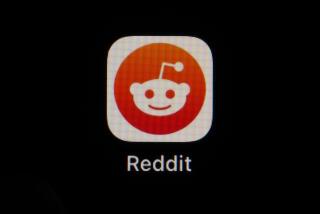Electronic Mail Service Boycott Is Being Urged : Communications: Sears and IBM plan to limit the number of free messages on Prodigy, beginning soon. Some users are up in arms.
- Share via
Some users of the Prodigy electronic communication service are responding to its price-increase plans with a brief message: “Boycott.”
The protesters--angered because Prodigy last week announced that it would soon begin to charge subscribers for using its electronic mail service--are asking other subscribers to abstain from purchasing products promoted through advertisements on the service.
Using telephone link-ups, the computer service enables subscribers to shop, pay bills, make investments, obtain news reports and communicate with other Prodigy users via electronic mail.
If successful in eroding advertising on the service, any large-scale boycott could be a setback for Prodigy, a joint venture of Sears, Roebuck & Co. and International Business Machines that has yet to turn a profit. But a Prodigy spokesman minimized the size of the boycott and said the service would proceed with the rate increase, scheduled to take effect Jan.1.
The boycott was launched Sept. 7, just one day after Prodigy announced price hikes for some subscribers. The company’s new pricing system raises monthly rates by $3--to $12.95--for those who pay on a monthly basis, while maintaining the old per-month price for subscribers who buy a one- or two-year subscription.
The protest is specifically aimed at Prodigy’s decision to scrap its policy of unlimited free electronic messaging in favor of a plan that allows subscribers to send no more than 30 free messages. Beyond that, it will cost 25 cents a message. The new charge is too costly for many frequent users, said Dawna Rowland, a boycotter who owns a transcription and desktop publishing service in Upland. Frequent users include members of support groups for the disabled, people with terminal diseases and environmentalists, she said. They form informal networks to counsel or encourage others with similar conditions or concerns, and many cannot afford frequent long-distance telephone calls, Rowland said.
“These people aren’t trying to hurt Prodigy,” Rowland said. “They really love Prodigy. They want to save it in a fashion they can use.”
However, Geoffrey Moore, a spokesman at Prodigy headquarters in suburban New York, said the company could no longer afford to offer free unlimited messaging.






